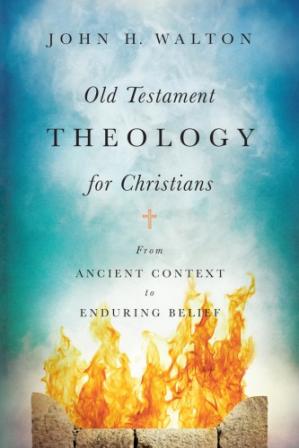That’s the topic of this recent online debate between UCA member Dr. Dustin Smith and evangelical apologist Kelly Powers. Check it out:
In this post I offer a few quick thoughts after watching it. Most importantly, I thought Dr. Smith did a good job of laying out the strong case that the God of the OT is a single self, a someone, one “person” or intelligent agent. This is based on the whole way that these books refer to the one God, using singular verb forms, adjectives, titles, nouns, pronouns, and so on. He might have also added that the function of a personal proper name like “Yahweh” is to refer to a single person, and that the very concept of a god is the concept of a certain sort of self (i.e. a being with intellect and will, who does things for reasons). And also, in the OT God is sometimes portrayed as a human-like figure, which is a natural way of portraying God as a single self. It’s fair to say that specialists in OT theology, unlike popular apologists and a few other scholars, generally agree that the OT God is a single self. In addition to the sources cited by Dr. Smith, we could add the verdict of evangelical scholar and specialist in OT theology Dr. John Walton:

No Trinity . . . In the Old Testament, God’s revelation centered on the idea that there was one God as opposed to a community of gods. The metaphysical models that would make trinitarianism meaningful simply do not exist in the Israelite cultural context. In some passages in the Old Testament, [trinitarian] Christians can look back and catch glimpses of some nascent trinitarianism, but such hindsight interpretations cannot be construed as a revelation of God in the Old Testament context and do not factor into the theology of the Old Testament.
Old Testament Theology for Christians: From Ancient Context to Enduring Belief, 287-89.
Against this, Mr. Powers really only pointed a few unusual OT texts which arguably are consistent with God being multi-personal. But that’s not really an argument for his claim that the OT teaches God to be multipersonal, nor does it engage with the evidence pointed out by Dr. Smith. Mr. Powers gets distracted on the irrelevant point that the NT (allegedly) teaches Jesus’s pre-human existence. He seems never to have heard of illeism, and Powers’ Google-answer that the “plural of majesty” only starts being used in the high middle ages is . . . well, obviously mistaken. The plural of majesty appears in the 7th c. AD Qur’an. And Dr. Smith pointed out that it occurs in some much earlier Jewish writings as well. Powers clearly over-reaches in asserting that the OT clearly teaches that God is multipersonal.
I’m not sure why both debaters dismiss the fairly popular scholarly suggestion that in texts like Genesis 1:26 God is supposed to be addressing his “divine council.” But I suppose that since it is natural for a king or emperor to speak both for himself and for his court or administration, maybe it’s not easy to tell the difference between his doing that, and his self-magnification by using the royal “we.”
Powers, unfortunately, tries to get some trinitarian mileage out of the fact that something called echad (Hebrew for “one”) may be a compound thing, something composed of parts, e.g. one family, one bunch of grapes, or one pile of rocks. Well, sure. But we unitarian Christians are not saying that anything which is echad is simple (partless); that’s no part of our case that OT theology is unitarian.
I appreciated how Dr. Smith brought out the fact that no OT God-word was then understood to refer to a Trinity or three “Persons.” If you think about it, it’s incredible that this would be so if, as some apologists claim, these authors are thinking of God as a Trinity.
Overall, it’s a substantial and respectful debate. Powers planted his flag on there being no explicit unitarian OT text, in other words, a text which says in so many words that “God is a single self” (or, as Powers oddly says, a single “personage”). But a teaching needn’t be explicit to be clear; implications are often very clear. And using proper names, singular person pronouns, a singular verb tenses – that is how human language express the assumption that the thing in question is a self. A reader who only had the OT could only conclude that the unique God is a single someone, even though sometimes prophets and angels speak in the first-person on his behalf.
Popular apologetics is riddled nowadays with misinformation about Old Testament theology. I hope Dr. Smith continues to shine the lights of common sense and good scholarship onto this subject.
For more from Dr. Smith check out his Biblical Unitarian podcast.
Update: Dr. Smith is doing a helpful series of podcasts in which he slows things down and analyzes different parts of the debate, starting here.
